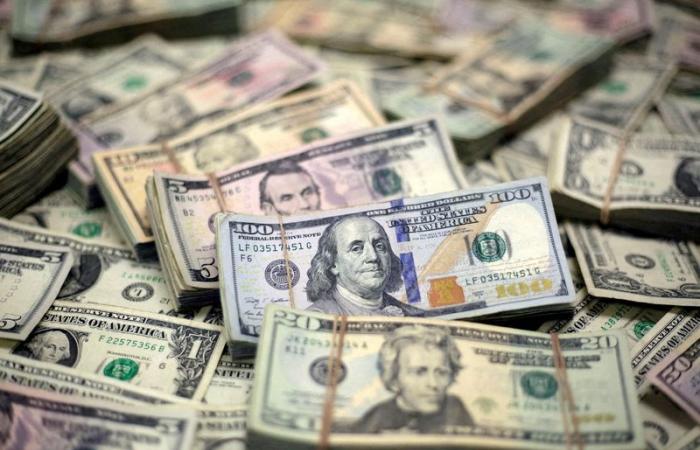
The dollar fell in Asia on Monday as investors braced for a potentially crucial week for the global economy as the United States chooses a new leader and, likely, cuts interest rates again, with major implications for bond yields.
The euro rose 0.4% to $1.0876, but faces resistance around $1.0905, while the dollar fell 0.3% to 152.45 yen. The dollar index fell 0.3% to 103.94.
Democratic candidate Kamala Harris and Republican Donald Trump remain virtually tied in opinion polls and the winner may not be known for several days after voting ends.
Analysts say Trump's policies on immigration, tax cuts and tariffs would put upward pressure on inflation, bond yields and the dollar, while Ms. Harris was seen as the candidate of continuity.
Brokers said the dollar's early decline could be linked to a well-respected poll that showed Ms. Harris taking a surprise 3-point lead in Iowa, thanks in large part to her popularity with female voters.
“It is widely believed that a Trump victory will be positive for the dollar, although many believe that outcome has been ruled out,” said Chris Weston, an analyst at brokerage Pepperstone. “A Trump presidency with full control of Congress could have the most impact, as a strong sell-off in Treasuries would be expected, leading to an upward spike in the dollar.”
“A Harris victory and a divided Congress would likely result in 'Trump deals' being quickly reversed and priced,” he added. “The dollar, gold, bitcoin and US stocks would likely be trending lower.
Uncertainty over the outcome is one reason markets are assuming the Federal Reserve will choose to cut rates by 25 basis points on Thursday, rather than repeat its massive half-point easing.
Futures imply a 99% chance of a quarter-point cut to 4.50%-4.75%, and an 83% chance of a similar size move in December.
“We forecast four further consecutive cuts in the first half of 2024 to reach a terminal rate of 3.25%-3.5%, but we see greater uncertainty about the speed next year and the final destination,” a said Jan Hatzius, economist at Goldman Sachs.
“Our baseline and probability-weighted forecasts are now a bit more pessimistic than market prices.
The Bank of England also meets on Thursday and is expected to cut rates by 25 basis points, while the Riksbank is expected to ease rates by 50 basis points and Norges Bank is expected to maintain its status quo.
The Reserve Bank of Australia meets on Tuesday and is expected to hold rates again.
The BoE's decision was complicated by a sharp sell-off in gilts following the Labor government's budget last week, which also saw the pound fall.
Early Monday, the pound regained some of its losses to settle at $1.2963, far from last week's low of $1.2841. [GB/]
China's National People's Congress, which meets Monday through Friday, is also expected to take further stimulus measures.
Sources told Reuters last week that Beijing plans to approve next week the issuance of more than 10 trillion yuan ($1.4 trillion) in additional debt over the next few years to revive its fragile economy .





